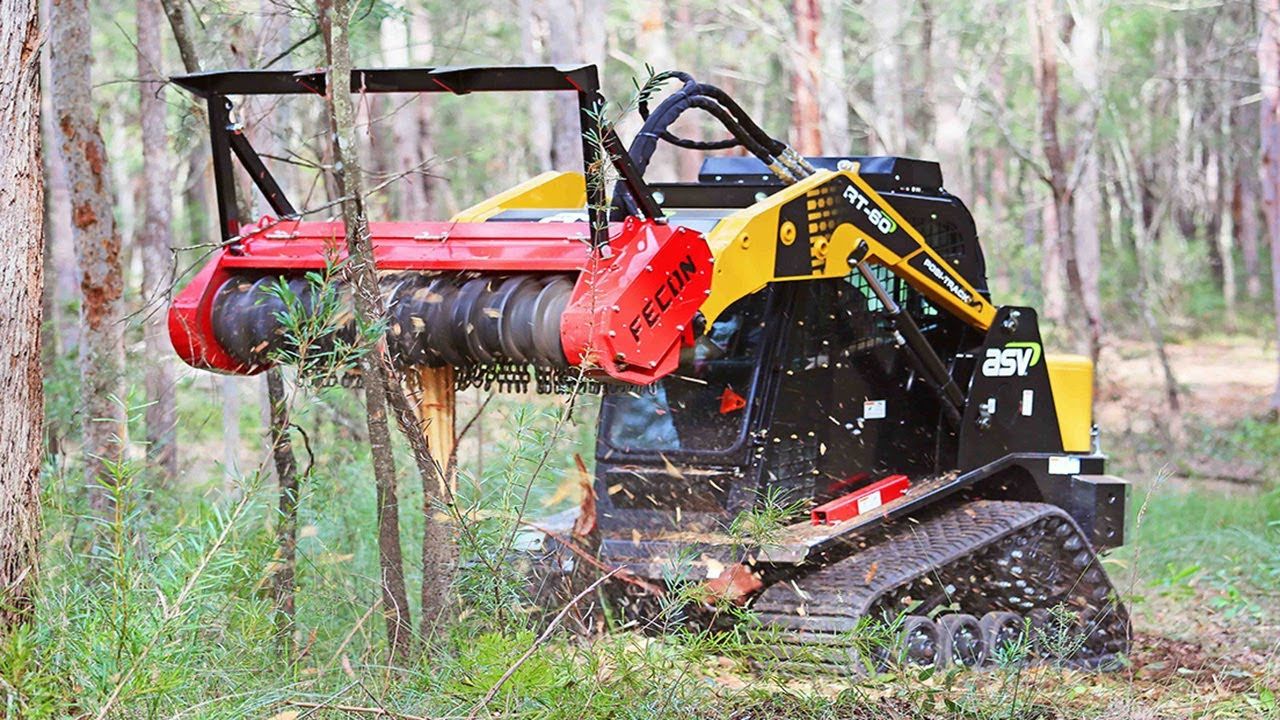Forestry mulchers are strong devices that remove trees, bushes, and other plant detritus. The forestry mulcher teeth are at the heart of every mulching machine, ripping and crushing plant debris. For them to remain in the best condition, they need to be appropriately maintained. Below are the most common problems with forest mulcher teeth and how to fix them.
Dull or Worn Teeth
Considering the nature of work that forestry mulcher teeth do, it is one of the most common issues encountering them. These cutting machine parts tend to lose their sharpness, especially after mulching abrasive material frequently. Dull or worn mulcher teeth will be very slow, thus causing other parts of the machine to wear off quickly. In addition, worn forestry mulcher teeth will also consume a lot of fuel when ripping the undergrowth.
Solution: Sharpen them regularly. Most of the forestry mulcher teeth are designed with a hardness that allows sharpening. However, after the teeth are worn out, sharpening might not yield any significant change. Then replace the teeth. Check the conditions of the teeth every time they mulch.
Broken Teeth
Forestry mulcher teeth can be broken when they hit hard subjects such as rocks, or metal on the ground. In some cases, if not fixed, broken mulcher teeth might affect the head thus leading to further damage.
Solution: Replace the damaged teeth immediately. To prevent more damage due to missing mulcher teeth, stop using the machine immediately after the first observation. To save time, it is recommended that users have a set of replacement tools near them.
Loose Teeth
One of the other common issues with forestry mulcher teeth is when they become loose. The reason why mulcher teeth detach or become loose is due to the intensity of the vibrations. Loose teeth are a danger to devices as the user might be ripped into pieces if detached from the head.
Solution: Replace the forestry mulcher teeth. In aid to prevent disaster, once the operator hears a funny noise, it is important to check the length of the teeth.
Uneven Tightness
One of the issues that may affect the performance of forestry mulchers is poor tightness. In this case, the teeth are not fixed firmly and may fall off when the machine is in use. This issue is normally caused by the machine being used for a long time and sometimes striking against hard objects such as rocks. As the teeth keep on becoming loose, the cutting efficiency will reduce, and the risk of damage to the machine is high.
Solution: The best method to solve the problem is to check the teeth and bolts that hold them in place regularly and tighten them as needed. If you are unable to properly tighten the bolts to the appropriate levels, you may seek the assistance of an expert or use a torque wrench to repair them.
Conclusion
Forestry mulcher teeth do the most critical job in defining the performance of the machine. However, the parts face a range of problems that can significantly affect their performance. It is because of these challenges that it is crucial to maintain these parts in good condition. There are several ways that you can do that, depending on the problems you are facing with the teeth. The most common forms of maintenance of the forestry mulcher teeth include sharpening, replacing, and cleaning. These steps should be performed on the teeth to ensure that they are in the right condition.














